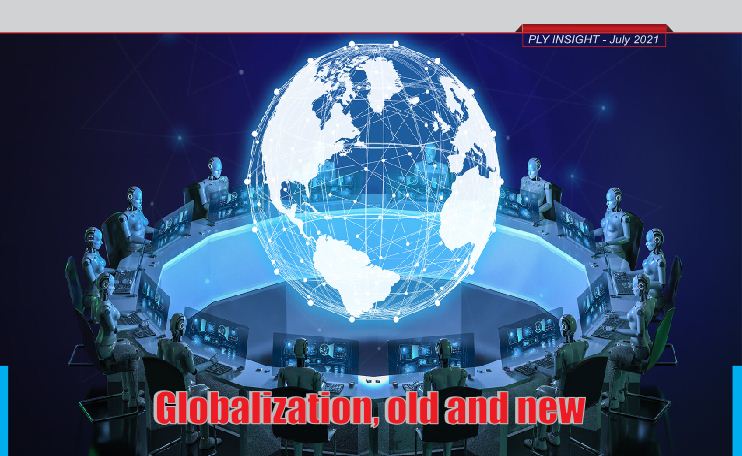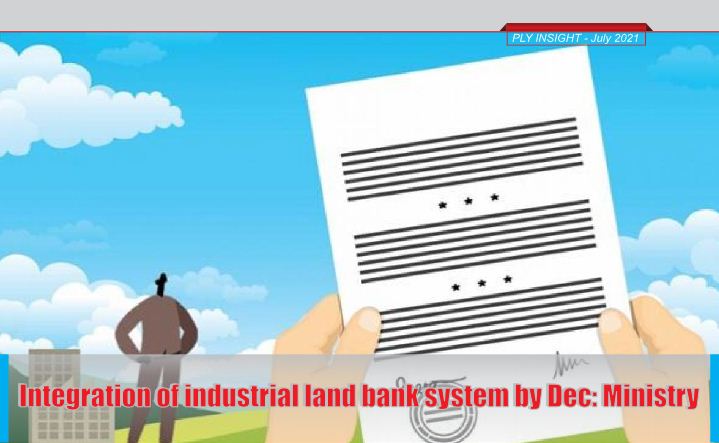
Globalization, old and new
- जुलाई 20, 2021
- 0
Some of the traditional forms of globalization (the free movement of goods, money, people, etc) are in partial retreat, but globalization is changing its style as new agendas come into focus. These now drive action on controlling climate change, taxing global companies, tackling terrorism, sharing vaccines, and the like, cross-border problems in a more integrated world are forcing countries to come together, even as elements of traditional globalization is loosing. The old globalization was essentially good for India. The new globalization could be a mix of good and bad news.
Global trade, for instance, has begun growing slower than global GDP. This significantly reverses a long-term trend. In only one of the last seven years did the volume of merchandise trade grow faster than the world economy. In 2019, global trade shrank in absolute terms for the first time in a decade, and did so again in 2020 because of the pandemic. Protectionist walls have been going up in several countries, including India.
Freer world trade has benefited India enormously in the last three decades. There is still a window of opportunity, as many countries want to reduce their dependence on China, which is the world’s largest manufacturing and trading power. India could ride the tide, but other countries have aggressively moved fast to grab the opportunity.
In goes without saying that other elements of globalization continue unabated, like the cross-border movement of capital- useful for India, since it is a net importer of capital.
The situation with the climate change agenda is more typical. Though India is an enthusiastic implementer of the Paris Agreement of 2015, it will get no assistance (financial or technical) to switch to new technologies and give up old ones like coal-based energy. At the same time, the countries responsible for much of the historical emission of carbon gases get a free pass. Even on the international supply of vaccines, the numbers agreed on at the recent meeting of the rich club of G7 countries are unremarkable, while India’s push for a patent waiver on covied vaccines awaits attention.
That leaves the most important element of the new globalization, namely the growth of social media platforms. The giant tech companies that dominate the field have had a free run but have increasingly come up against sovereign state power, including in India. This should be a fit case for the setting of global rules for a global business. Given the rise of powerful autocratic states, it will be a difficult challenge. Time to set global rules is now.
वैश्वीकरण, नया और पुराना
वैश्वीकरण के कुछ पारंपरिक स्वरूप (वस्तुओं, मुद्रा और लोगों का मुक्त आवागमन आदि) आंशिक तौर पर वापसी पर हैं लेकिन नए एजेंडों के केंद्र में आने के साथ ही वैश्वीकरण बदल भी रहा है।
ये नए कदम जलवायु परिवर्तन को नियंत्रित करने, वैश्विक कंपनियों पर कर लगाने, आतंकवाद से निपटने, टीकों को साझा करने आदि से संबंधित हैं। एकीकृत विश्व में सीमा पार की दिक्कतें विभिन्न देशों को मजबूर कर रही हैं कि वे एक साथ आएं। यह सब ऐसे समय हो रहा है जब वैश्वीकरण के पारंपरिक तत्त्व शिथिल हो रहे हैं। पुराना वैश्वीकरण भारत के लिए बेहतर था जबकि नए वैश्वीकरण में अच्छी-बुरी दोनों तरह की बातें हो सकती हैं। उदाहरण के लिए विश्व व्यापार की वृद्धि दर वैश्विक जीडीपी की वृद्धि दर से धीमी हो गई है। इसने एक दीर्घकालिक रुख को महत्त्वपूर्ण ढंग से पलट दिया। बीते सात वर्षों में से केवल एक वर्ष ऐसा रहा जब वाणिज्यिक व्यापार का आकार विश्व अर्थव्यवस्था से तेज गति से बढ़ा। सन 2019 में विश्व व्यापार दशक में पहली बार कम हुआ। सन 2020 में महामारी के कारण एक बार फिर ऐसा हुआ। कई देश संरक्षणवादी उपायों को बढ़ावा दे रहे हैं इनमें भारत भी शामिल है।
मुक्त विश्व व्यापार ने बीते तीन दशक में भारत को बहुत लाभ पहुंचाया है। अवसर अभी भी बरकरार है। कई देश दुनिया के सबसे बड़े विनिर्माता और ताकतवर कारोबारी देश चीन पर अपनी निर्भरता कम करना चाहते हैं। भारत इस अवसर का लाभ उठा सकता है लेकिन अन्य देशों ने शुरूआती प्रयास करने की पुरजोर पहल की है। के पास पहले कदम उठाने का लाभ है। वैश्वीकरण के अन्य तत्त्व अक्षुण्ण हैं। मिसाल के तौर पर भारत के लिए उपयोगी पूंजी का सीमा पार आवागमन, क्योंकि भारत पूंजी का शुद्ध आयातक है।
जलवायु परिवर्तन एजेंडे की स्थिति और अनूठी है। भारत 2015 के पेरिस समझौते को लागू करने को उत्सुक है लेकिन उसे नई तकनीक अपनाने और पुरानी कोयला आधारित तकनीक त्यागने पर कोई वित्तीय या तकनीकी मदद नहीं मिलेगी। इसके साथ ही कार्बन उत्सर्जन के लिए ऐतिहासिक रूप से जवाबदेह देशों को रियायत मिलेगी। टीकों की अंतरराष्ट्रीय आपूर्ति के मामले में भी हालिया जी 7 बैठक में जस आंकड़े पर सहमति बनी है वह उल्लेखनीय नहीं है जबकि भारत की कोविड टीके पर पेटेंट समाप्त करने की मांग पर अभी ध्यान दिया जाना बाकी है।
नए वैश्वीकरण का सबसे अहम तत्त्व है सोशल मीडिया मंचों का विकास। बड़ी टेक कंपनियां इस क्षेत्र पर काबिज हैं लेकिन भारत समेत कई देशों में उनका संप्रभु राज्य शक्ति से टकराव हुआ है। अब वक्त आ गया है कि वैश्विक कारोबार के लिए नियम तय हों।
































































